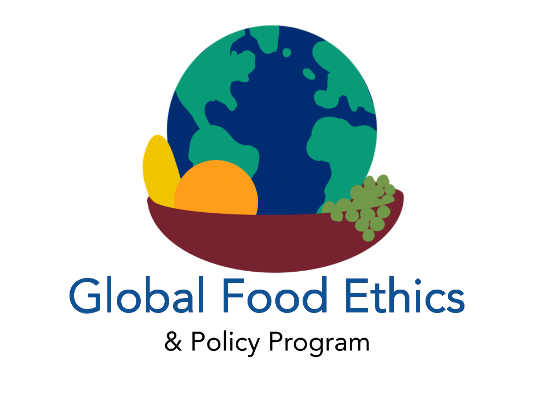
What Drives Our Work?
-
Food systems are disrupting the climate and degrading natural resources, which is creating a feedback loop that in turn further impacts food systems.
-
Nutrition and food security are not improving for many people and worsening in some regions and among certain demographics.
-
Dietary patterns are unhealthy and unsustainability for a significant proportion of the world’s population.
-
Much of the global population is unable to afford or access a nutritious diet.
-
Current data and analyses are insufficient to understand the state of food systems, their dynamics, and how workers and consumers benefit or fail to benefit from food systems.
-
There are many trade-offs when it comes to transforming our food systems that come with a complex set of ethical and equity implications.
GFEPP works across three pillars to achieve our goals:
Research and Evidence Generation
We generate and disseminate new scientific evidence and ethics scholarship relevant to food systems. Our trans-disciplinary research integrates perspectives from science, ethics, policy, and practice. Areas of focus of our research include:
- Improving food system decision making
- Understanding how foodscapes influence diets
- Exploring the most vexing ethical debates in food systems dialogues and policy
Education and Training
We prepare the next generation of educators, policymakers, and development practitioners to become leaders in sustainable food systems, policy, and ethics.
Policy and Strategy
We provide guidance on ethical, political, social, health, and nutrition issues interconnected with food systems. We research sustainable solutions that achieve more equitable food security by working with partners such as policymakers, civil society, farmers, and communities to provide on-the-ground solutions.
History
The GFEP program evolved from the three-year Global Food Ethics Project, launched in 2012 by the Johns Hopkins Berman Institute of Bioethics, Bloomberg School of Public Health, and the Nitze School of Advanced International Studies. The aim of the original project was to address conflicting visions of what it meant to feed the world ethically and to identify a path forward, even in the absence of consensus about ethical commitments and values. The main product of the Global Food Ethics Project was the 7 by 5 Agenda for Ethics and Global Food Security (May 2015), which proposed seven projects to make progress on ethics and global food security within five years, including:
1. Ethical Challenges in Projections of Global Food Demand, Supply, and Prices
2. The Food Sovereignty Movement and the Exceptionality of Food and Agriculture
3. The Case for the Professionalization of Farming
4. Global Agricultural Research and Development: Ethics, Priorities, and Funders
5. Climate-Smart and Climate-Just Agriculture
6. Ethics of Meat Consumption in High-Income and Middle-Income Countries
7. Choose Food